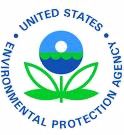 After a May 5th meeting to discuss reported adverse effects on pets associated with flea and tick products, ongoing agency actions related to the reported incidents, and additional information needs, the EPA still has not come forward with any determinations.
After a May 5th meeting to discuss reported adverse effects on pets associated with flea and tick products, ongoing agency actions related to the reported incidents, and additional information needs, the EPA still has not come forward with any determinations.
It is expected that the EPA will complete its analysis of risk this fall (October) and discuss mitigation measures following that assessment.
Attending the May meeting were representatives from the EPA, the FDA’s Center for Veterinary Medicine, Health Canada, flea control producers including Summit Vet Pharm, Central Life Sciences, Hartz Mountain Corporation, MGK, TSG, Exponent, Fort Doge Animal Health, Bayer Animal Health, Sergeant’s Pet Care, Merial Limited, AHI, Pillsbury Law, and Intervet.
Additional information will be collected so that data is more accurate and the EPA expects that to be completed this month (July).
To date the actual spot-on flea control incidents triggering this advisory included:
2007
Death 560
Major 610
Minor/Moderate/Unspecified 21,000
Moderate 1,600
Minor 1,500
Unspecified 140
2008
Death 640
Major 740
Minor/Moderate/Unspecified 8,500
Moderate 6,700
Minor 27,000
Unspecified 130
 The ASPCA receives more than 700 calls daily from veterinarians and pet parents, resulting in over 150,000 annual cases involving medications, insecticides, plants and foods. ASPCA epidemiologist Dr. Margaret Slater analyzed data from public calls managed by the ASPCA regarding flea and tick products. The data identified two key findings. When cats were treated inappropriately (not per label directions), they are significantly more likely to experience severe reactions: no illness despite a call to the ASPCA (7%), mild illness (69%), moderate illness (22%), major illness (2%), and death (0.1%). no illness despite a call to the ASPCA (18 percent), mild illness (17 percent), moderate illness (45 percent), major illness (19 percent) and death (2 percent).
The ASPCA receives more than 700 calls daily from veterinarians and pet parents, resulting in over 150,000 annual cases involving medications, insecticides, plants and foods. ASPCA epidemiologist Dr. Margaret Slater analyzed data from public calls managed by the ASPCA regarding flea and tick products. The data identified two key findings. When cats were treated inappropriately (not per label directions), they are significantly more likely to experience severe reactions: no illness despite a call to the ASPCA (7%), mild illness (69%), moderate illness (22%), major illness (2%), and death (0.1%). no illness despite a call to the ASPCA (18 percent), mild illness (17 percent), moderate illness (45 percent), major illness (19 percent) and death (2 percent).
